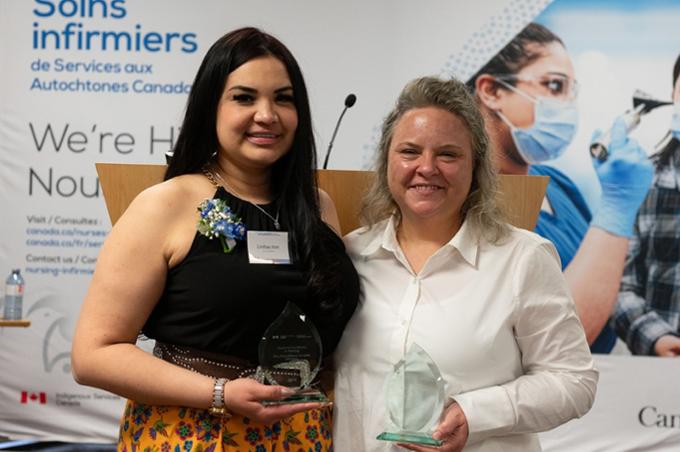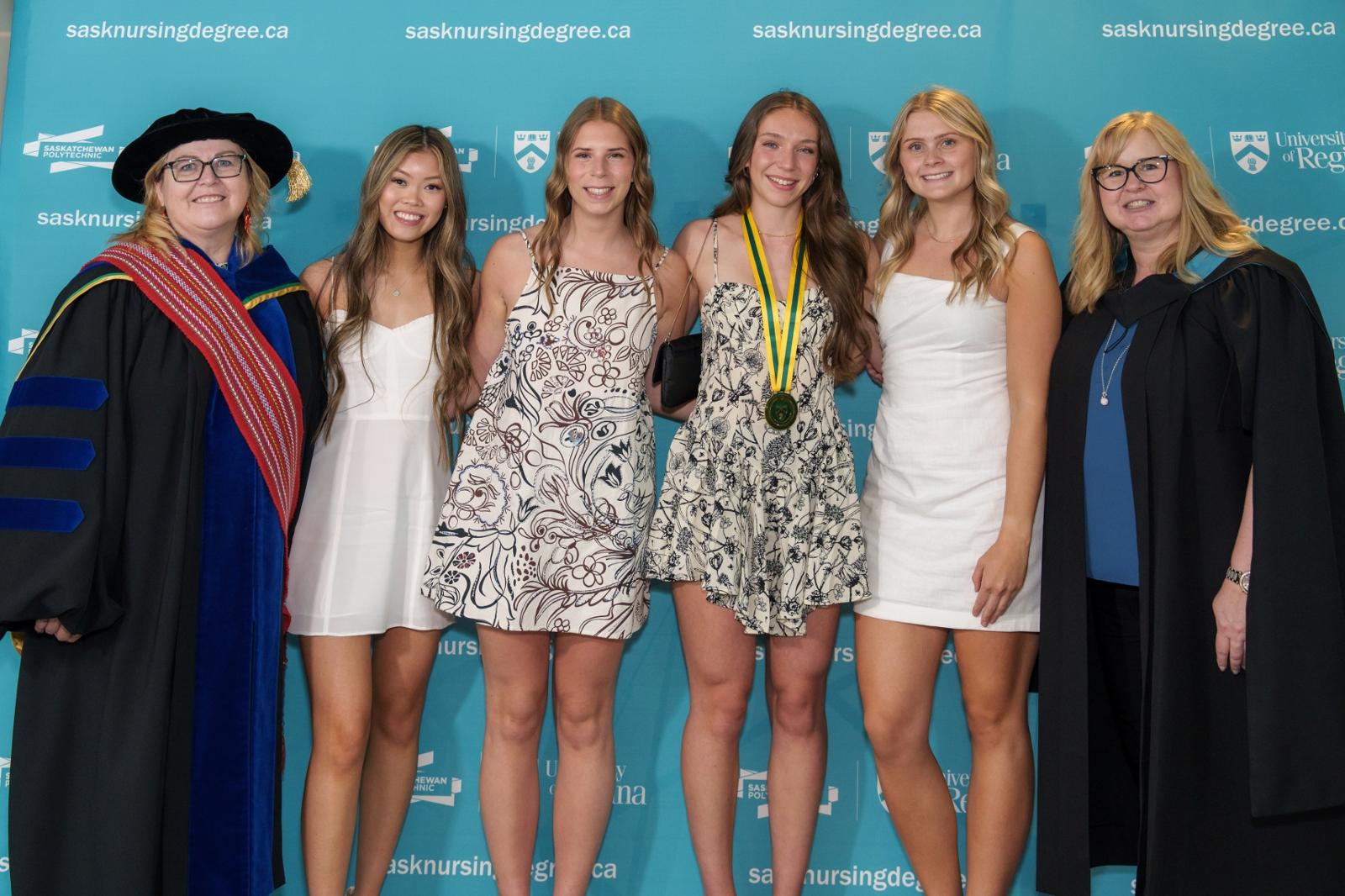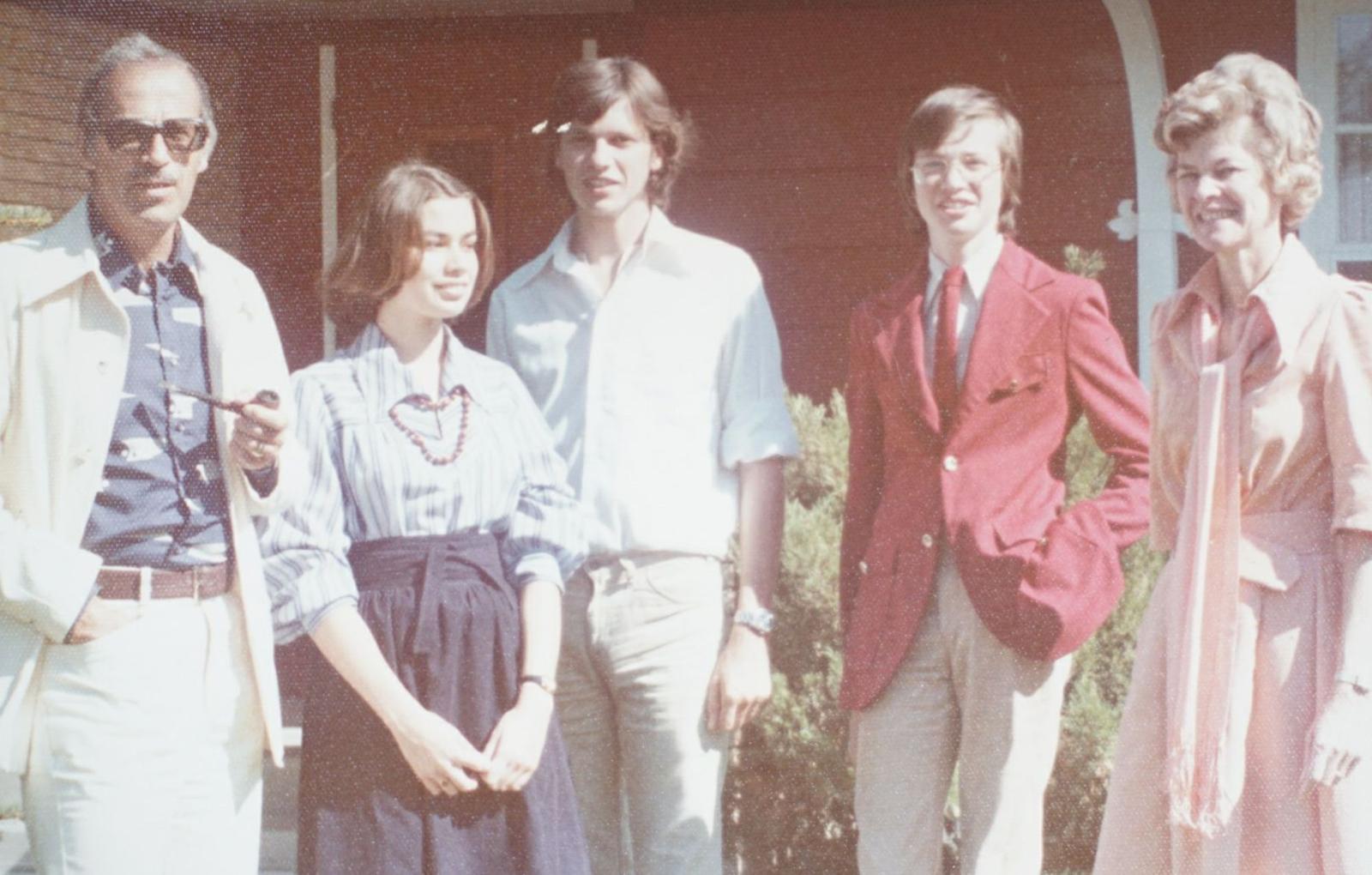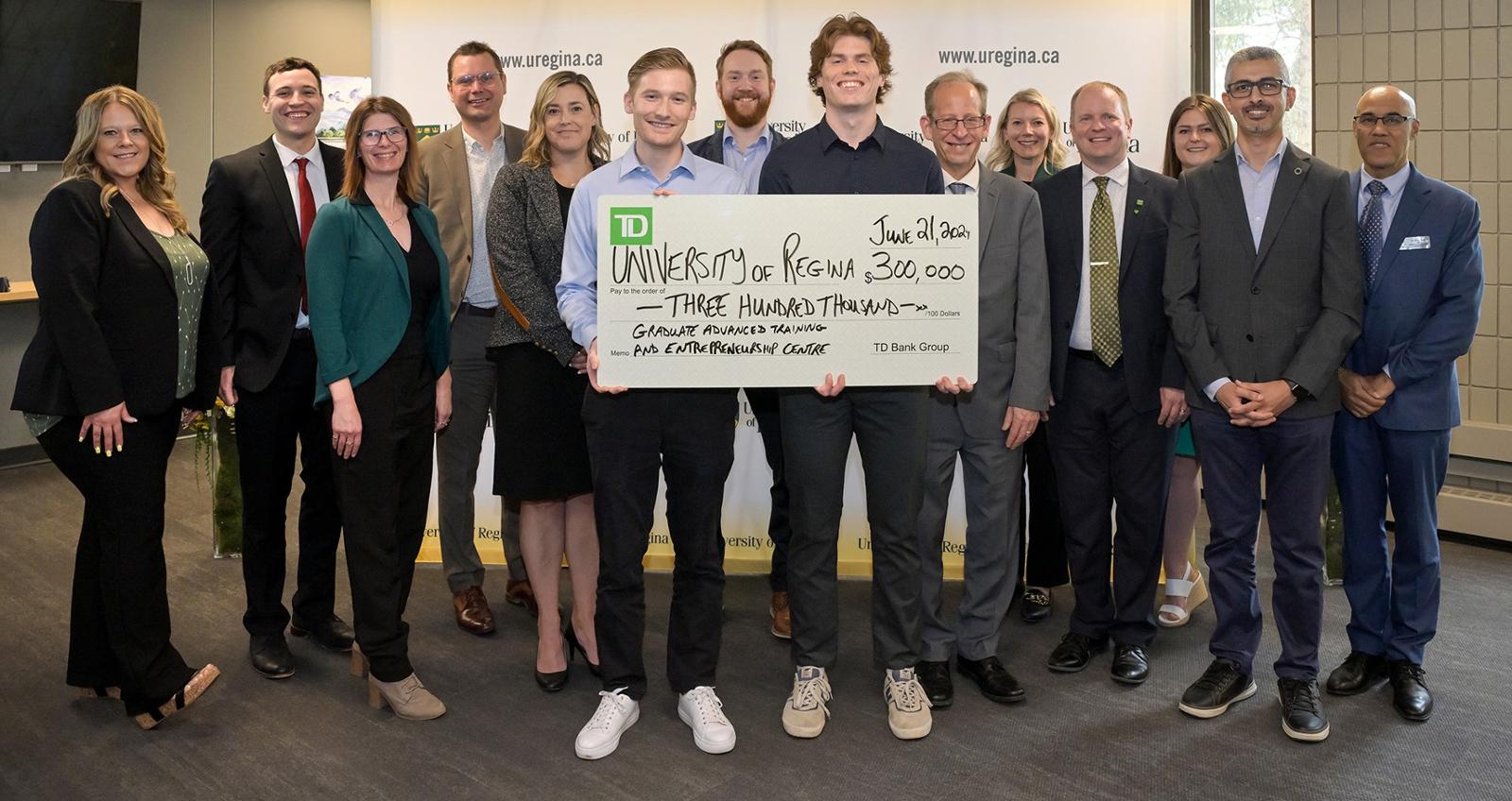For Lindsay Iron, community is everything. As one of this year’s Award of Excellence in Nursing recipients, she is incredibly proud of what the award means, recognition for working hard to make positive change in the northern communities she serves.
The Award of Excellence in Nursing, presented by Indigenous Services Canada, celebrates the dedication, initiative and excellence of nurses employed by First Nations and Inuit communities, as well as Indigenous Services Canada.
“I have been working so hard the last few years, trying to make changes and make a difference in the communities where I work. To be rewarded for hard work with this amazing recognition is just the cherry on top of my proud sense of accomplishment.” — Lindsay Iron, Nurse Practitioner Student
This fall, Lindsay looks forward to becoming a graduate of the Collaborative Nurse Practitioner Program (CNPP) with a Master in Nursing, Nurse Practitioner degree from the University of Regina and Saskatchewan Polytechnic. Lindsay has been serving communities in northern Saskatchewan since graduating in 2011 with a Bachelor in Nursing degree from the First Nations University of Canada and the University of Saskatchewan northern campus in Prince Albert. As a young Indigenous mother with two children aged five and nine, Lindsay balanced motherhood with career and educational responsibilities, pursuing advanced practice certifications while working in a hospital setting.
Realizing a dream with on-reserve nursing
Spending her first two years with the Prairie North Health Region, Lindsay gained valuable experience as an Emergency Room and Advanced Practice Primary Care nurse. But she longed to return to the North, and in 2013, she realized her dream by moving North to on-reserve nursing. Her work is a true calling. As a communicable disease nurse specialist, she was instrumental in increasing sexual health accessibility within remote locations, introducing harm reduction services, and initiating laboratory services where they did not previously exist.
Growing up as a member of the Canoe Lake Cree First Nation on Treaty 10 Territory in Northern Saskatchewan, Lindsay has been fascinated with nursing since undergoing surgery at a young age. She also witnessed the positive impact it had on the lives of others through the experiences of a relative who was a nurse.
“I always found it captivating and exciting and had it set in my mind at a very young age that I wanted to be a nurse,” she said.
The northern, isolated communities where Lindsay works are rooted in culture, tradition, and respect for the importance of family, and they embody a true spirit of belonging. “It doesn’t matter which community I am in, I always feel the sense of community and home,” said Lindsay. “First Nations people are funny, loving, welcoming, generous, friendly, humorous and kind, and that’s what I feel from every northern community I visit.”
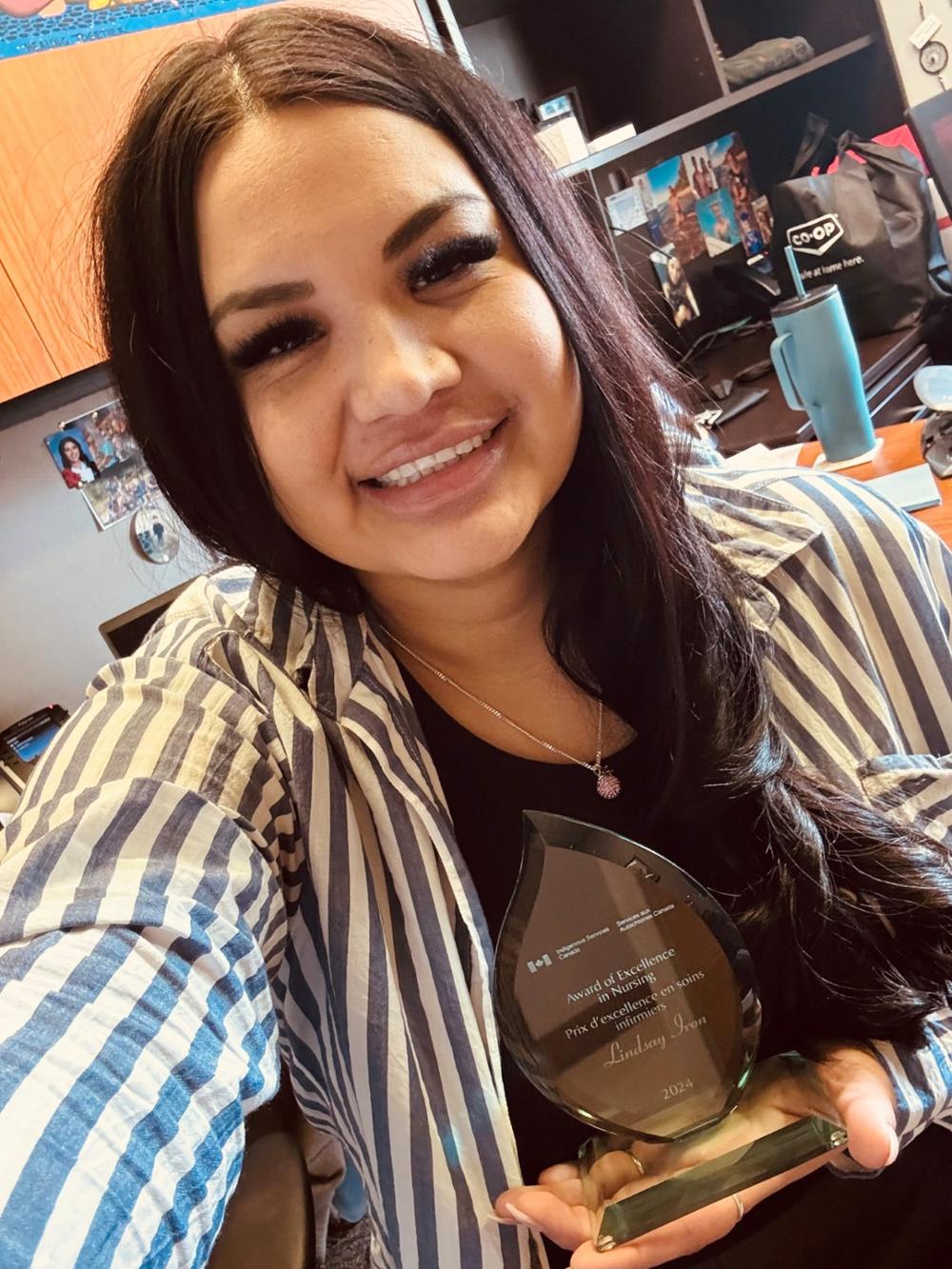
A strong leader and a valuable resource to the communities she serves
Now the mother of four children, Lindsay appreciates the knowledge she gained from the Collaborative Nurse Practitioner Program. “I am very grateful and very blessed to be able to have gone through this program and to take what I learned and contribute back to First Nations people in the North,” she said. “It expanded my thinking, broadened my scope, and filled huge gaps in my knowledge base. I feel privileged to be able to put my new skills to use, as this degree is not only valuable for me but for entire communities. The number of people I can provide services to is immense.”
She added that “going North meant a lot of responsibility and independence, and it was the perfect foundation for becoming a Nurse Practitioner. I knew one day I wanted to be in a position where I could make impactful change. I strongly feel that Indigenous nurses are strong leaders in communities, and we hold a sacred privilege as leaders. It’s a real blessing to work on reserves; there is so much to gain.”
It wasn’t an easy road for Lindsay to follow. “It was very hard, with a ton of self-discipline and many sacrifices, so I’ve grown a lot, and it has changed me for the better,” she said. “I have enjoyed my role as a Nurse Practitioner student and the person I have become in the process.”
The most gratifying aspect of nursing for Lindsay is interacting with patients, clients, front-line nursing staff, and being engaged within a community.
An overwhelming sense of pride
Lindsay is overwhelmed with pride in receiving the Award of Excellence in Nursing. “I have been working so hard the last few years, trying to make changes and make a difference in the communities where I work. The sense of accomplishment and the race to beat my personal goals drove me to do better than yesterday. To be rewarded for hard work with this amazing recognition is just the cherry on top of my proud sense of accomplishment.”
She is determined to achieve her ultimate goal of obtaining her PhD. And with her drive, tenacity and community values, there’s no doubt she will achieve all her goals. Along the way, she hopes to encourage more Indigenous women to accomplish anything they set their hearts on. “If I can do it, trust me, so can you.”
Find out more about the U of R’s new graduate nursing programs and how to apply. Applications are accepted throughout the year!
Banner Image: Lindsay Iron (left), with fellow award recipient Anke Krug (right), receive their Awards of Excellence in Nursing. Photo Courtesy Indigenous Services Canada
About the University of Regina
2024 marks our 50th anniversary as an independent University (although our roots as Regina College date back more than a century!). As we celebrate our past, we work towards a future that is as limitless as the prairie horizon. We support the health and well-being of our 16,700 students and provide them with hands-on learning opportunities to develop career-ready graduates – more than 88,000 alumni enrich communities in Saskatchewan and around the globe. Our research enterprise has grown to include 21 research centres and 12 Canada Research Chairs. Our campuses are on Treaties 4 and 6 - the territories of the nêhiyawak, Anihšināpēk, Dakota, Lakota, and Nakoda peoples, and the homeland of the Michif/Métis nation. We seek to grow our relationships with Indigenous communities to build a more inclusive future.
Let’s go far, together.
